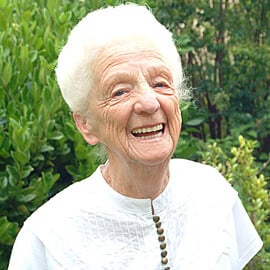"It can be absolutely devastating for family and friends - people simply do not know what to do. It's incredibly hard for family members not to say, ‘For goodness sake, snap out of it."
In an interview with George Negus, Dr Nick Carr described depression as:
"There is this pervasive sense that nothing is fun. There is this darkness that settles on people. That loss of enjoyment, the absence of the spark that we get from at least something... With true clinical depression, amongst many other symptoms, one of the most important is we have just lost that spark."
It can be absolutely devastating for family and friends - people simply do not know what to do. It's incredibly hard for family members not to say, ‘For goodness sake, snap out of it.' It's most probably the most unhelpful thing you can ever say, because if someone's depressed they can't pull up their socks and get on with it. When people are clinically depressed, there is a change in their brain chemistry; serotonin and noradrenalin are brain transmitters and levels of these change when depressed.
Life transition is a high risk time - young people moving from the support of the school to the wider world, relationships breaking up with older people. Physical illness is also very strong driver of depression. A lot of what we are seeing now is trouble with social functioning and people having a miserable time. There used to be times when neighbours were more part of a community. Even with shopping, for instance, there weren't big anonymous shopping malls. There was a lot of connection, and a lot of that support has gone.
How do we help? There are three main areas:
- Medication
- Psychological treatment
- Lifestyle treatment
It's very hard when you are feeling sluggish; you don't want to move and there's something stopping everything. But if you can get moving, it actually kicks in the body's natural antidepressants - our endorphins, which are our hormones which help to lift mood."
Both Dr. Carr and Beyond Blue advocate the need for open discussion on depression. As Jeff Kennett says: "The strength and power of talking can't be underestimated. We must reach the stage where depression can be discussed as freely as talking about flu."
Key facts about depression
- One in five Australian adults will experience mental illness at some stage in their lives
- Depression is one of the most common conditions in young people and increases with adolescence
- Prevalence is greatest amongst 18 - 24 year olds at 27 percent
- Women are more likely than men to use a health service for depression
- Depression rates are higher where people live alone
- People not in the workforce have nearly twice the incidence of depression
- Depression is not a life sentence. Most will recover fully, especially if they receive help early
- Many treatments are available, including medication. Talking about your depression and exercise are the initial, best steps





